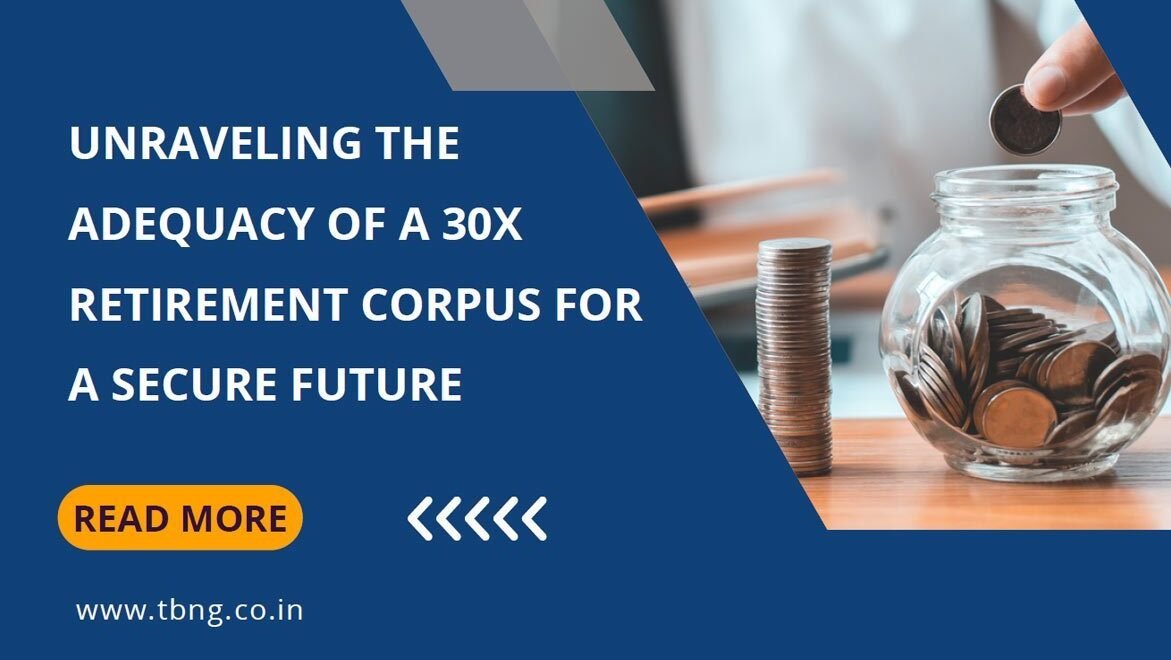How much of a corpus is required to meet your expenses post-retirement? This is a common question that arises when considering retirement planning, especially for high-net-worth individuals and Non-resident Indians. One prevailing notion is that saving 30 times your annual expenses is sufficient for a comfortable retirement in India. However, let’s take a closer look at this assumption and gain a unique perspective on the matter.
Retirement is a long-term financial goal that holds paramount importance in our lives. With increasing life expectancy, changing lifestyles, and rising expenses, planning for retirement has become more critical than ever before. In addition, it is important to note that retirement benefits in India are often limited or insufficient. Unlike other countries, where robust pension systems or social security programs provide a safety net for retirees, India lacks comprehensive retirement benefits. This makes it even more crucial for individuals to take personal responsibility and plan for their retirement needs effectively. While it’s challenging to predict the exact duration of our retirement, it is wise to plan for a longer retirement period.
Navigating the Complexities of Retirement Planning
Now, let’s address the main question: Is a retirement corpus of 30 times your yearly expenses enough to lead a long retired life in India? The short answer is yes. However, it’s essential to understand the implications and potential scenarios that can impact your retirement corpus.
Let’s consider a case study where a person retires with a monthly expense of Rs. 1 lakh and a corpus of Rs. 3.6 crore (30 times the annual expenses). Assuming a fixed inflation rate of 7% and post-tax returns of 9%, the retirement corpus will last approximately 43 years. However, what if your assumptions are wrong by a margin of 10%?
If the retirement corpus is 10% less, monthly expenses are 10% more, inflation is 10% higher, and returns are 10% lower, the retirement corpus will last only 27 years. This showcases the importance of considering potential variations and uncertainties in your retirement planning.
In reality, multiple scenarios can unfold where one or more variables deviate from your assumptions. It’s crucial to account for these possibilities. Analyzing different combinations of variables, including inflation and returns, can reveal a range of outcomes.
For instance
- Investing solely in fixed deposits for retirement income generation may provide security but may lead to below-inflation returns and inefficient taxation.
- Significant withdrawals from the retirement corpus for expenses such as buying a house, funding education, or facing medical emergencies could further reduce the timeline of your corpus.
- Diversifying investments and considering higher-yielding options can help generate better returns and increase the sustainability of the retirement corpus.
Developing strategies that generate a regular stream of income, alongside equity exposure, can contribute to a longer-lasting retirement corpus.
In conclusion, while saving 30 times your annual expenses can provide a good starting point for retirement planning, it’s crucial to consider the variables, uncertainties, and potential variations that can impact the longevity of your retirement corpus. Seek professional guidance to tailor a retirement plan that suits your individual circumstances and goals, providing a well-secured financial future post-retirement in India.


Leave a Comment